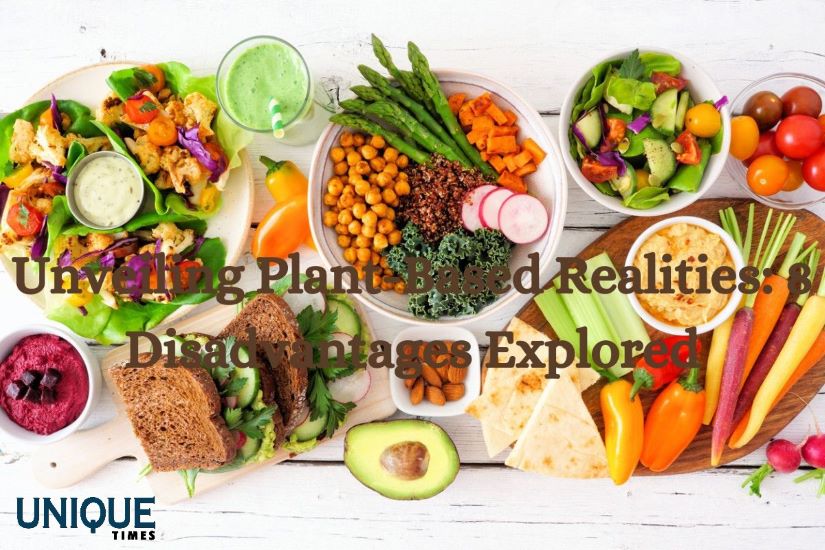8 Disadvantages of Plant-Based Foods: Debunking Myths and Realities

The popularity of plant-based diets has surged in recent years, driven by concerns for health, animal welfare, and environmental sustainability. While plant-based foods offer numerous health benefits and are often praised for their nutrient density and environmental friendliness, it’s essential to acknowledge that they may also have some disadvantages. Here, we’ll explore eight potential drawbacks of plant-based diets:
1. Nutrient Deficiencies: Plant-based diets may lack certain essential nutrients commonly found in animal products, such as vitamin B12, iron, zinc, omega-3 fatty acids, and complete proteins. Without careful planning and supplementation, individuals following strict plant-based diets may be at risk of nutrient deficiencies.
2. Protein Quality: While plant-based foods contain protein, the quality of plant protein may be inferior to that of animal protein. Plant proteins are often incomplete, lacking one or more essential amino acids, which are crucial for building and repairing tissues in the body.
3. Digestive Issues: Some individuals may experience digestive discomfort when transitioning to a plant-based diet, especially if they increase their intake of high-fiber foods like fruits, vegetables, legumes, and whole grains. Gas, bloating, and other digestive issues may occur until the gut microbiome adjusts to the dietary changes.
4. Anti-Nutrients: Certain plant-based foods contain anti-nutrients, such as phytates, oxalates, and tannins, which can interfere with the absorption of minerals like iron, zinc, and calcium. Soaking, sprouting, fermenting, or cooking these foods can help reduce anti-nutrient levels and enhance mineral absorption.
5. Allergies and Sensitivities: While plant-based diets can accommodate various dietary preferences and restrictions, some individuals may have allergies or sensitivities to certain plant foods, such as nuts, soy, gluten, or nightshade vegetables. It’s essential to identify and avoid potential allergens or irritants when planning a plant-based diet.
6. Environmental Impact: While plant-based diets are often touted as more environmentally sustainable than animal-based diets, not all plant-based foods are created equal in terms of their environmental impact. Large-scale monocrop agriculture, pesticide use, water consumption, and transportation can contribute to environmental degradation and habitat loss.
7. Cost Considerations: While plant-based diets can be affordable, some specialty plant-based products, such as meat alternatives, dairy substitutes, and organic produce, may be more expensive than their animal-based counterparts. Access to affordable and diverse plant-based foods may be limited in certain regions or communities.
8. Social Challenges: Following a plant-based diet may present social challenges, especially in settings where animal products are central to cultural traditions, social gatherings, or family meals. Some individuals may face pressure, criticism, or judgment from others regarding their dietary choices, which can be challenging to navigate.
While plant-based diets offer numerous health and environmental benefits, it’s essential to consider potential drawbacks and challenges when adopting this dietary pattern. With mindful planning, education, and flexibility, individuals can navigate the complexities of plant-based eating and optimize their health, well-being, and sustainability goals.








